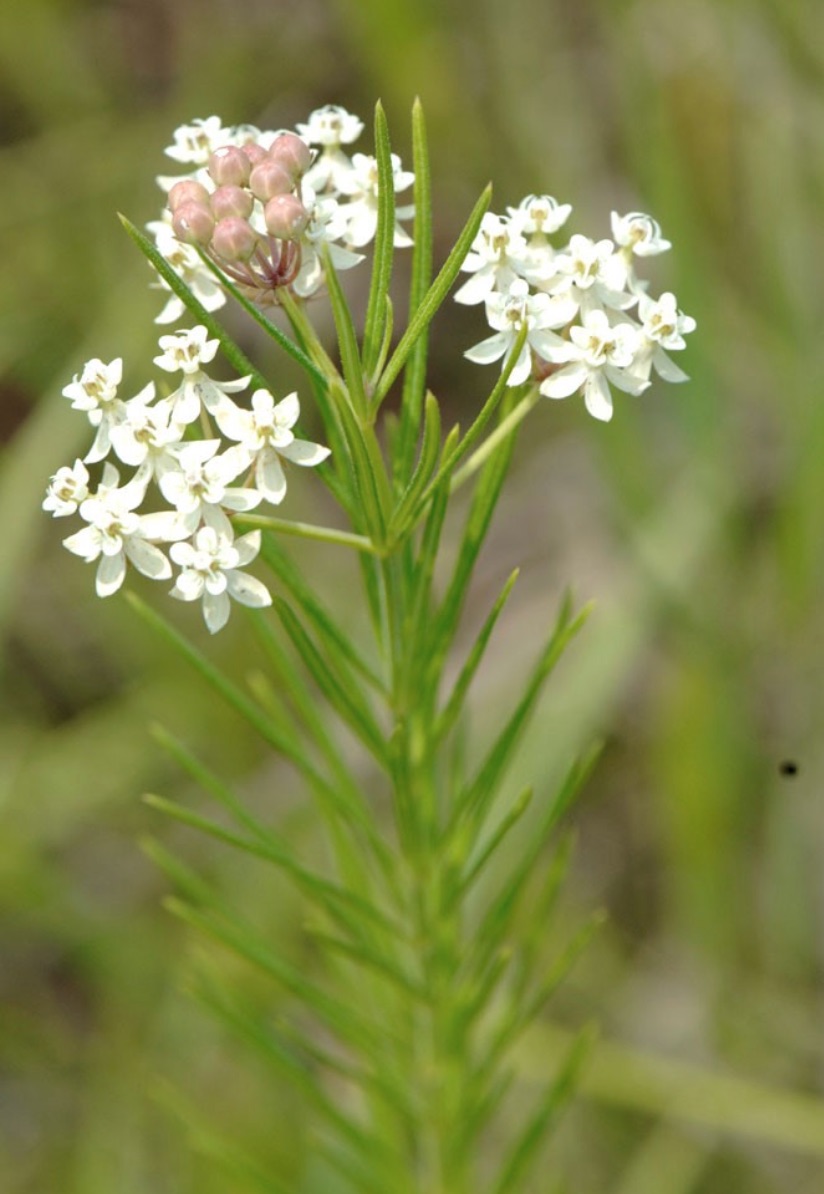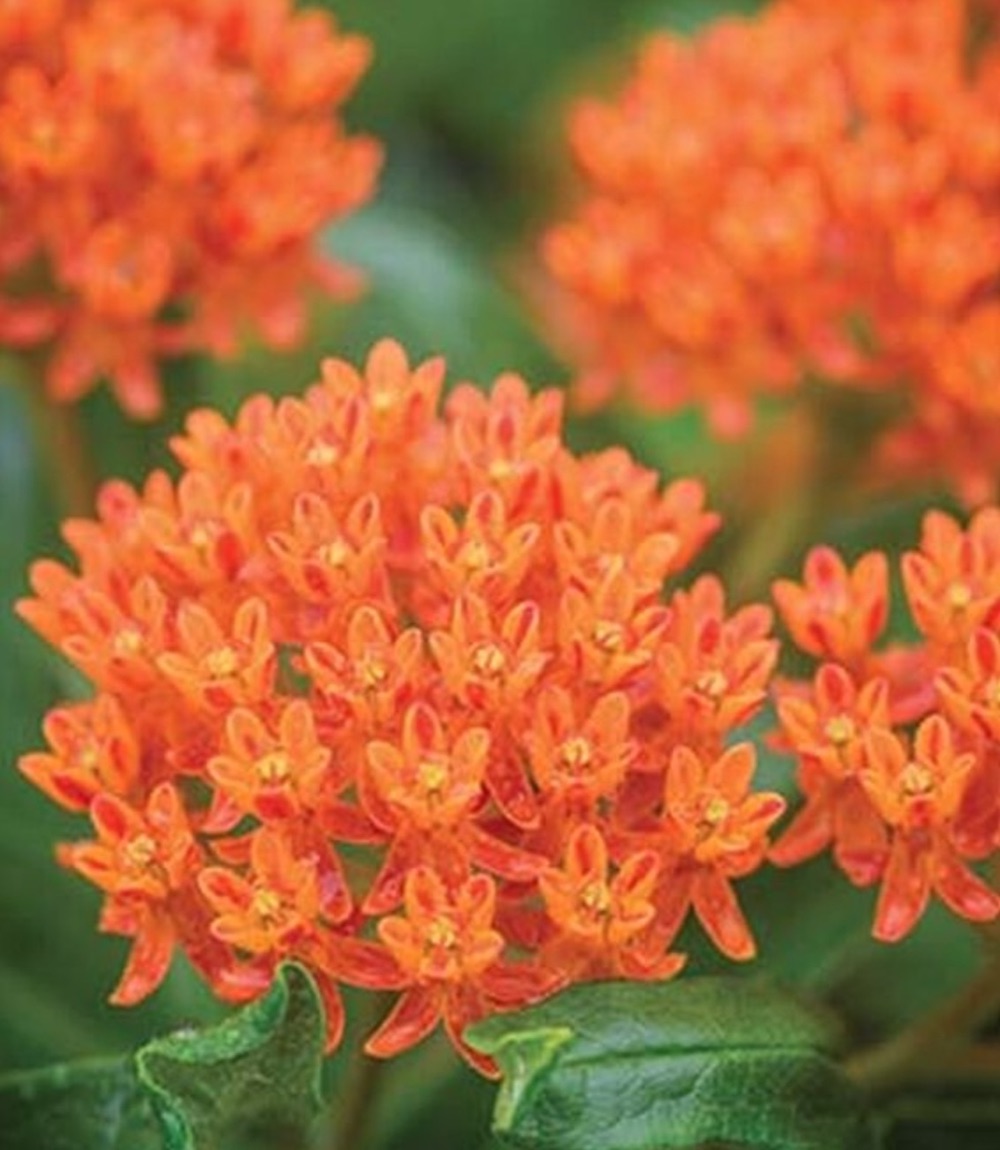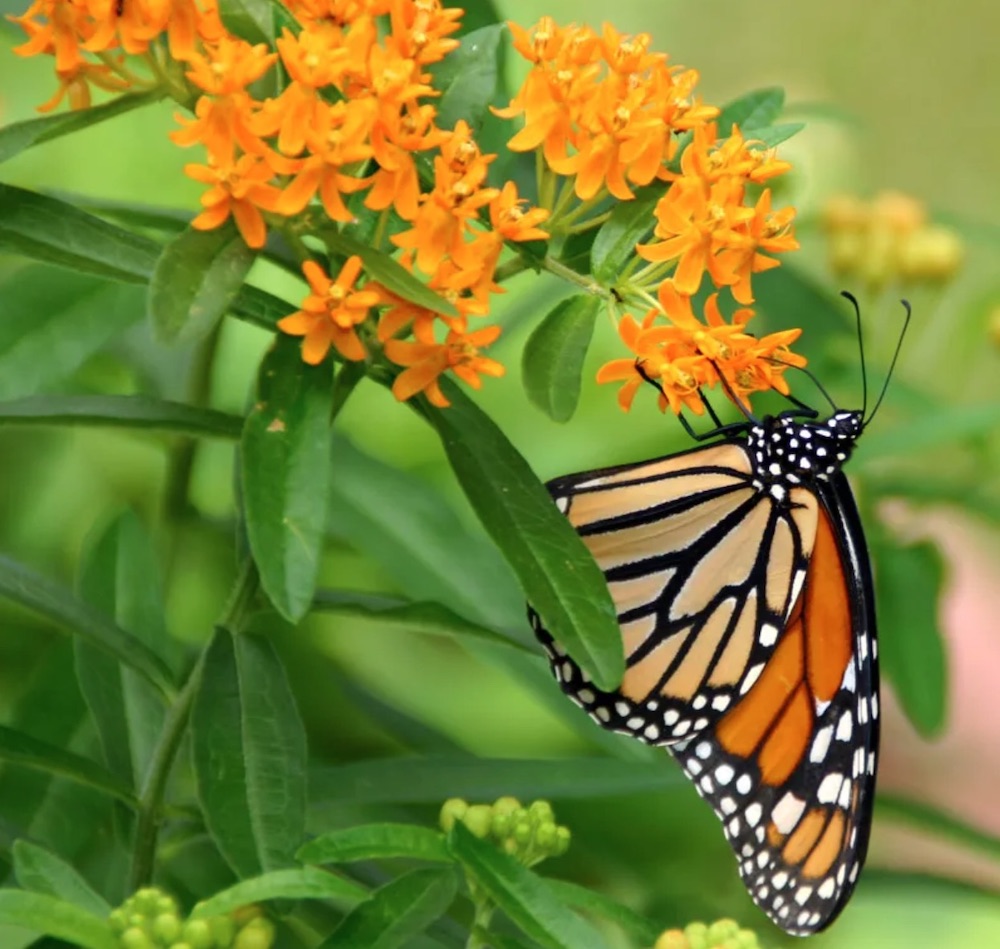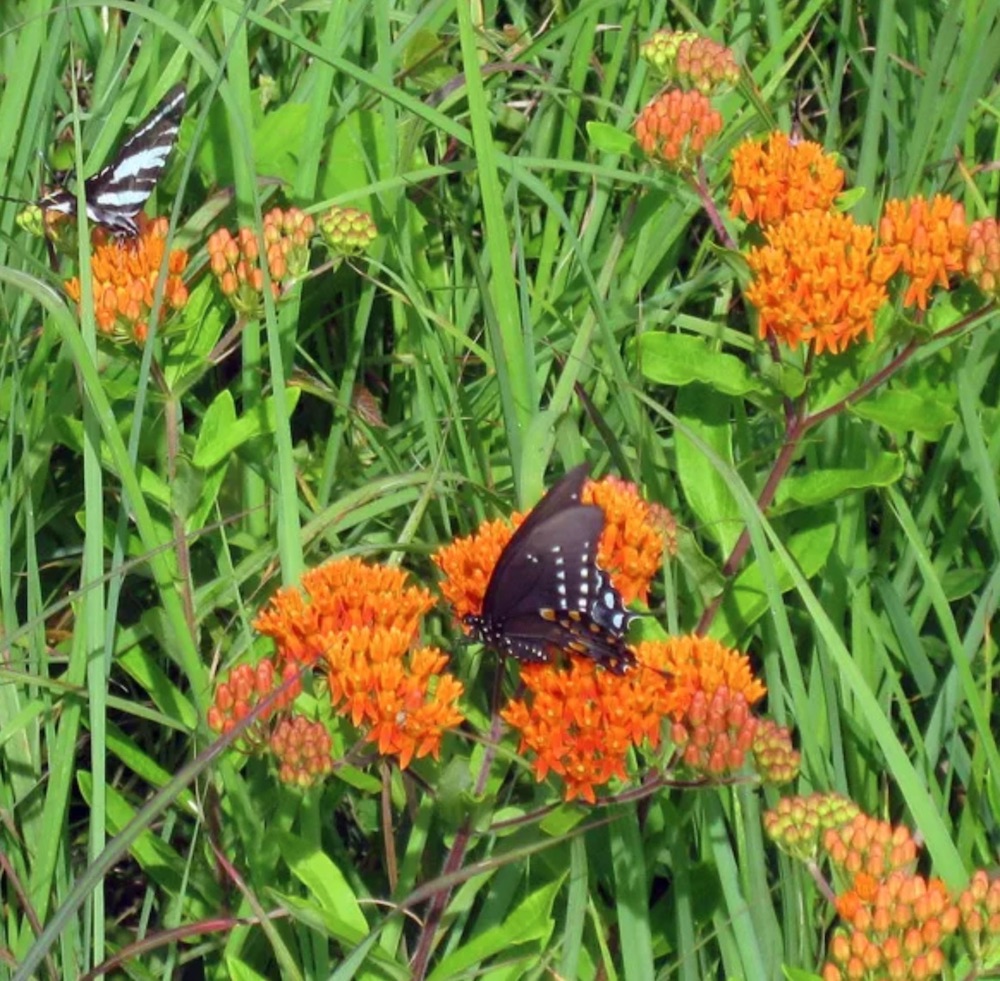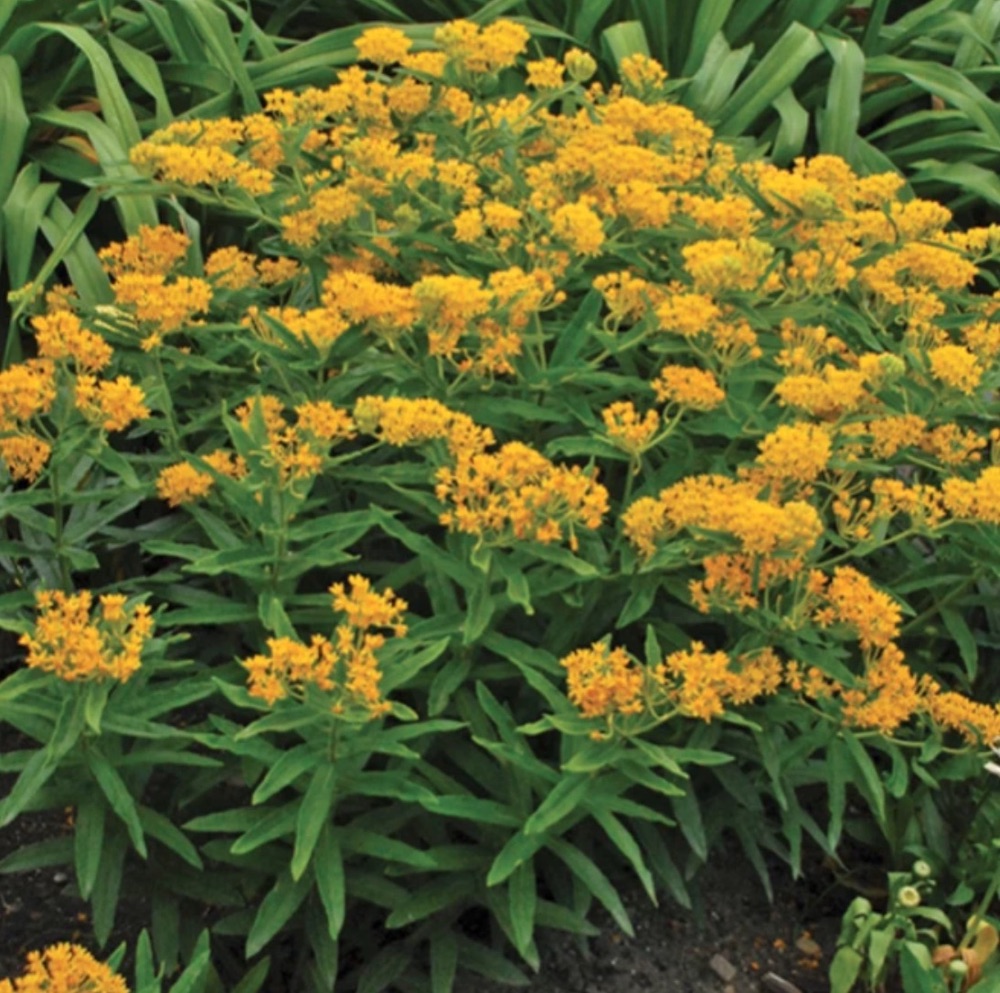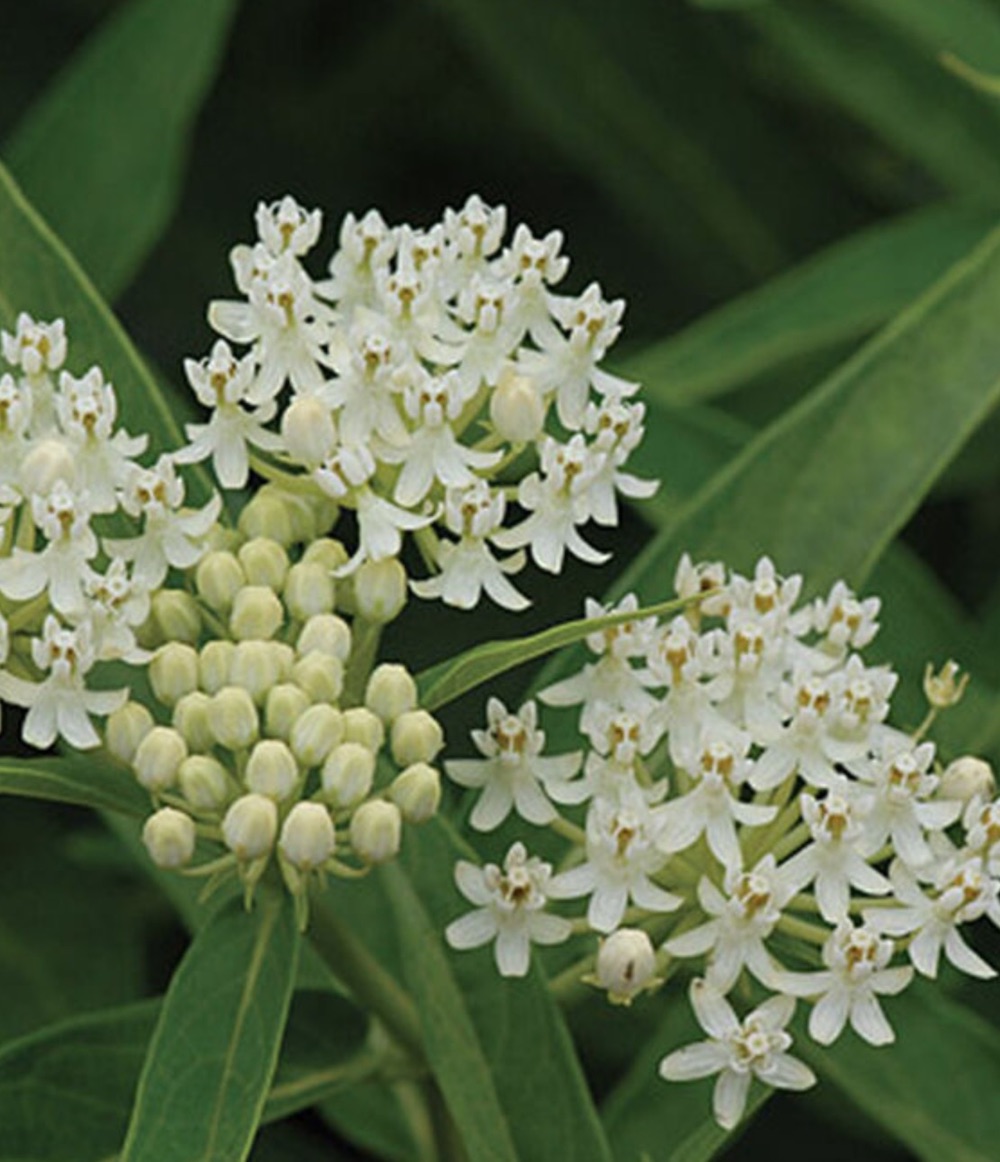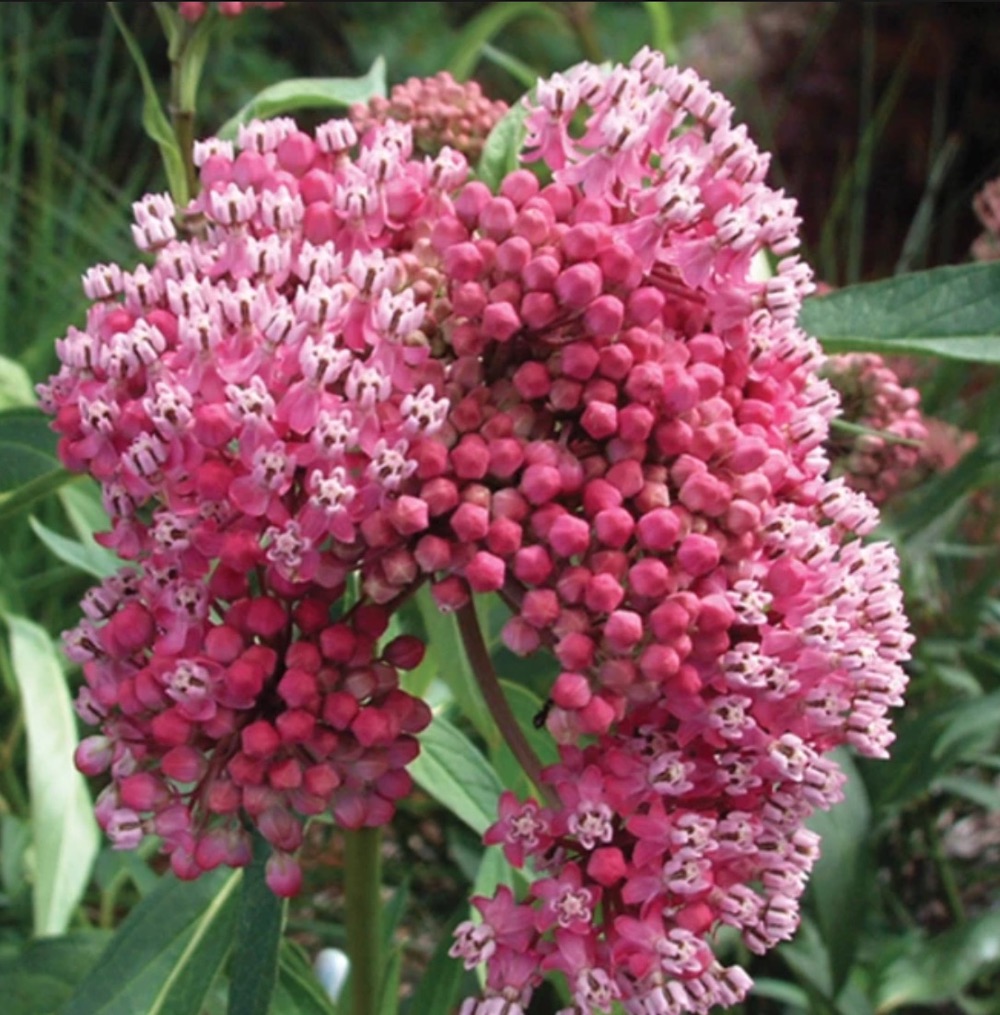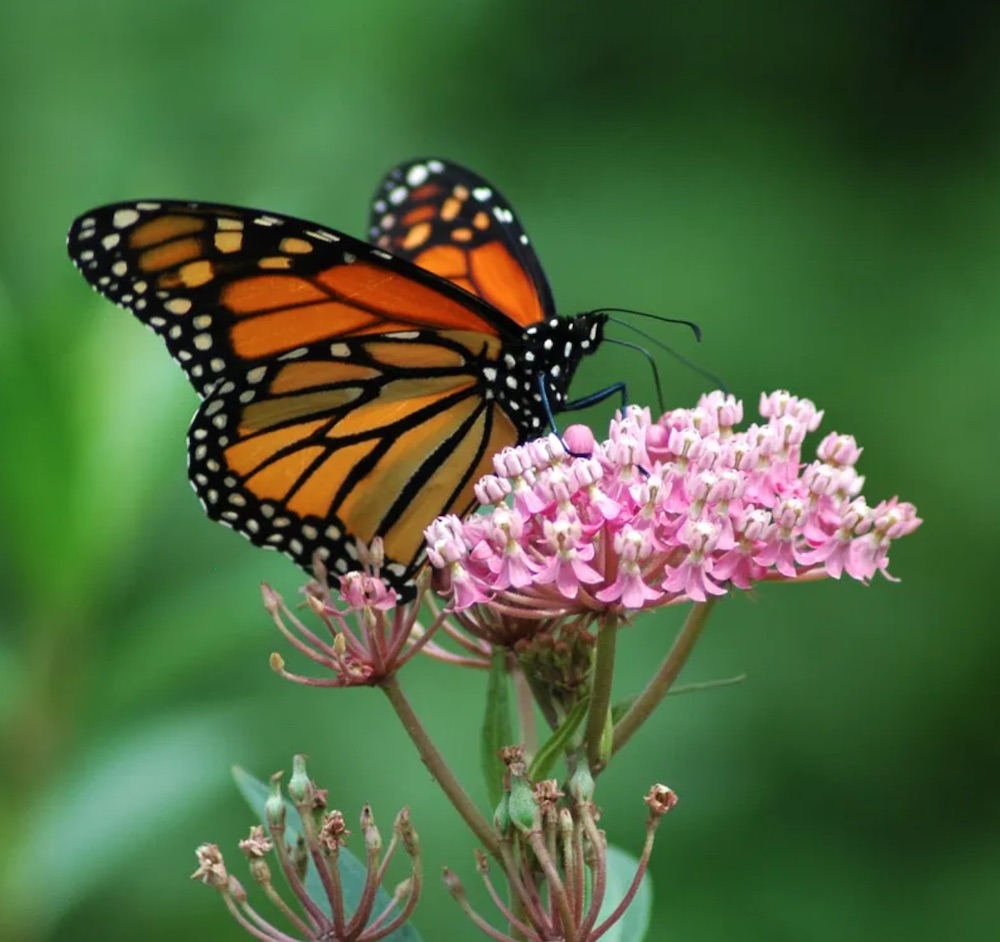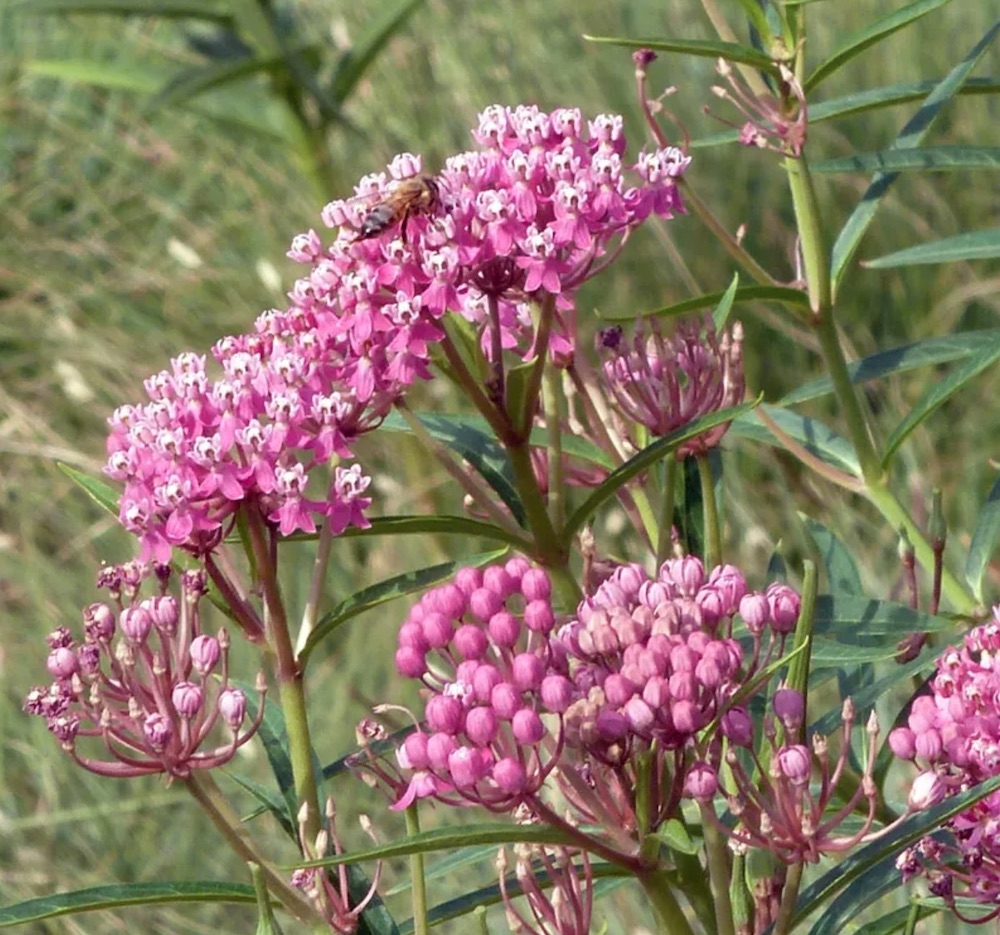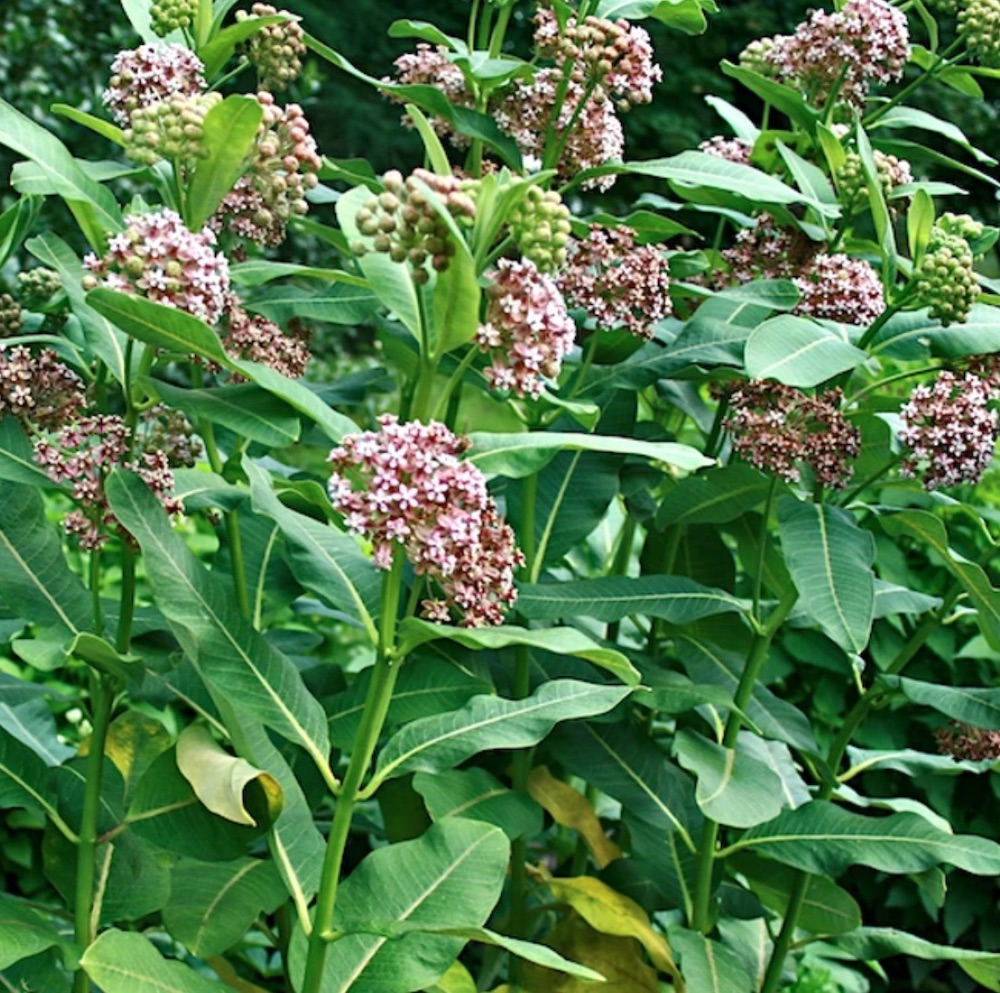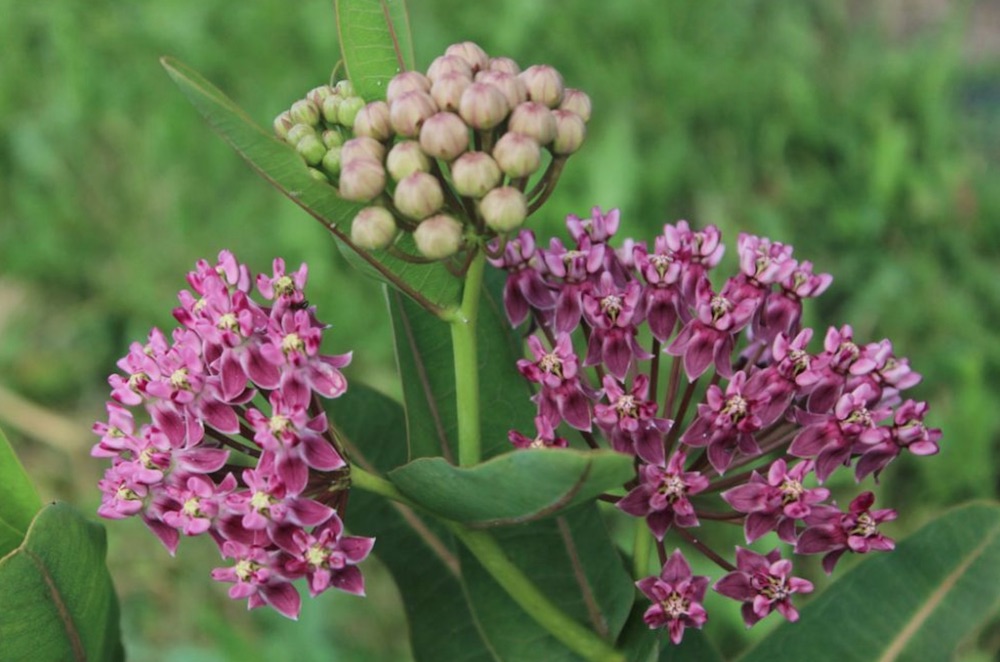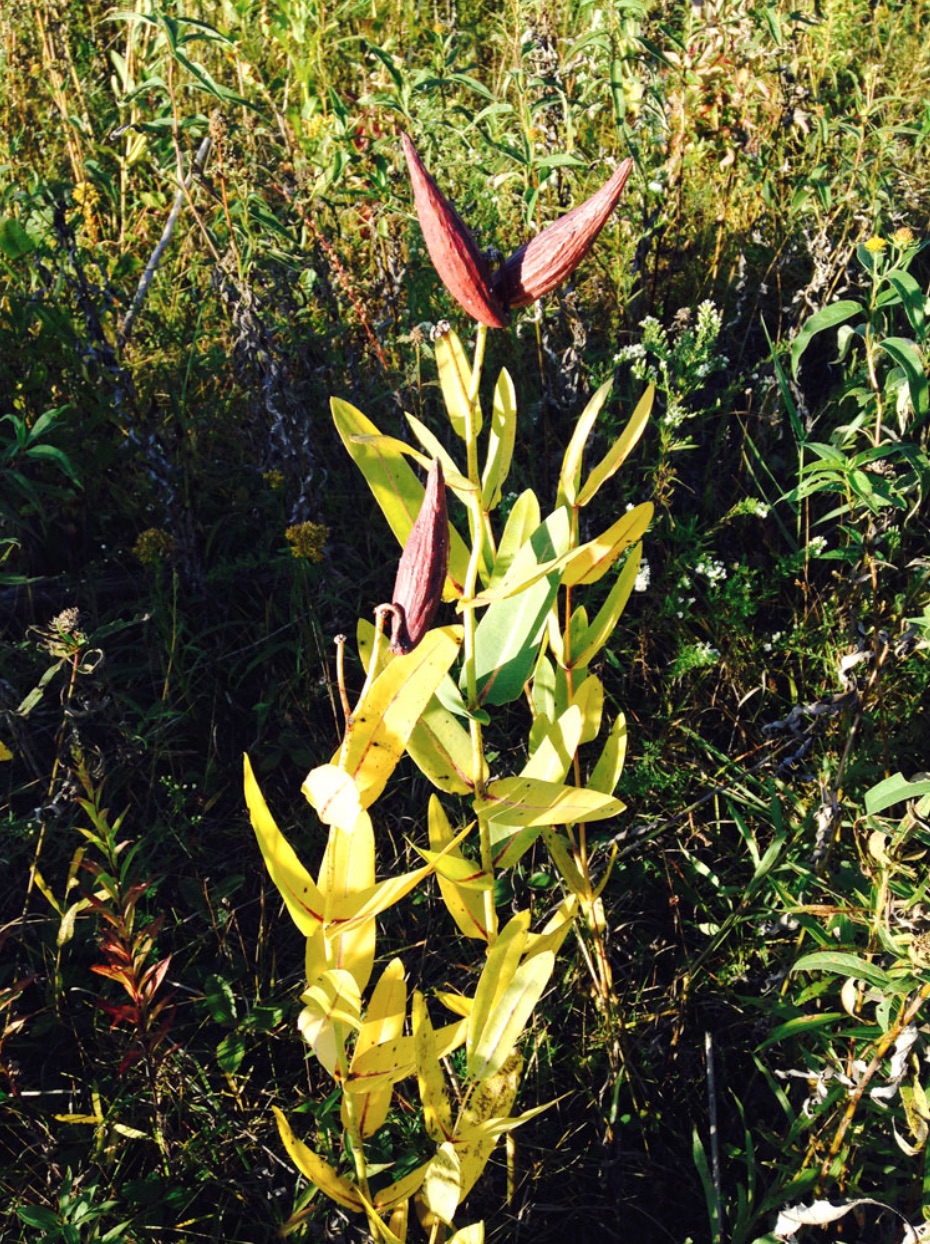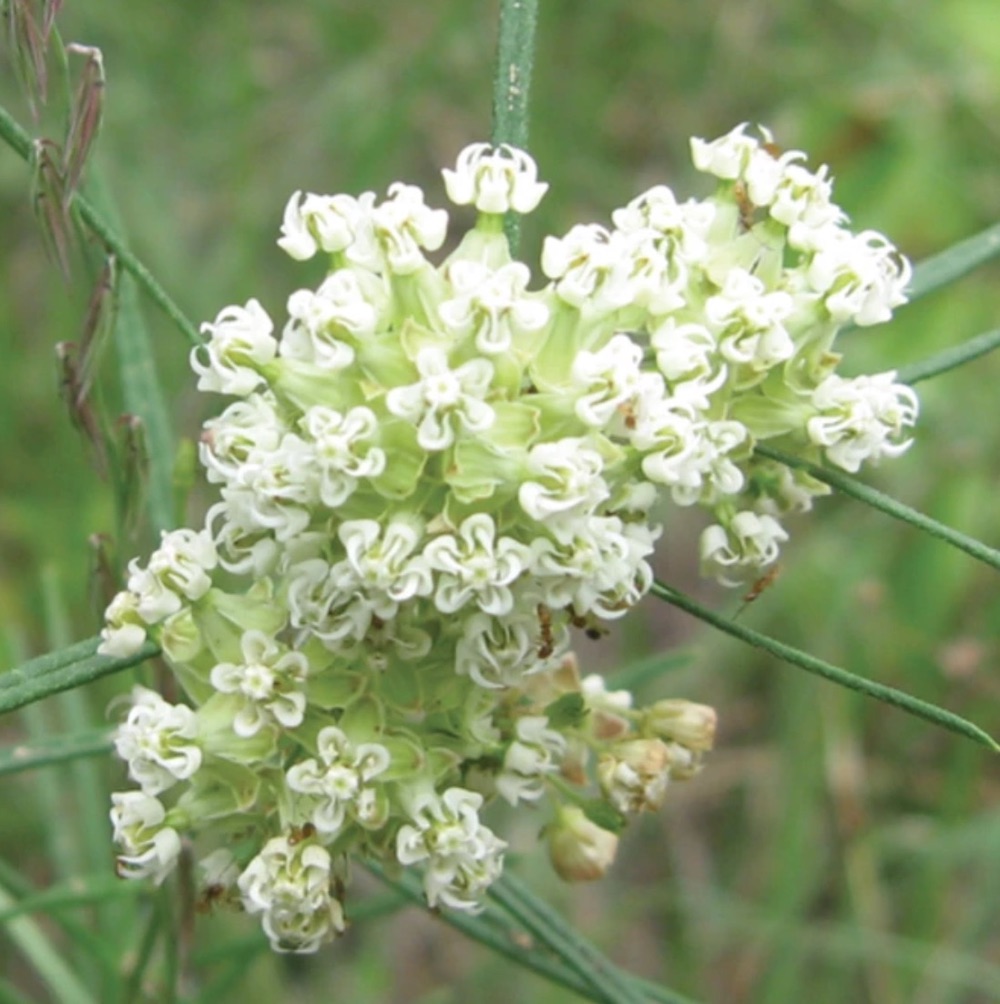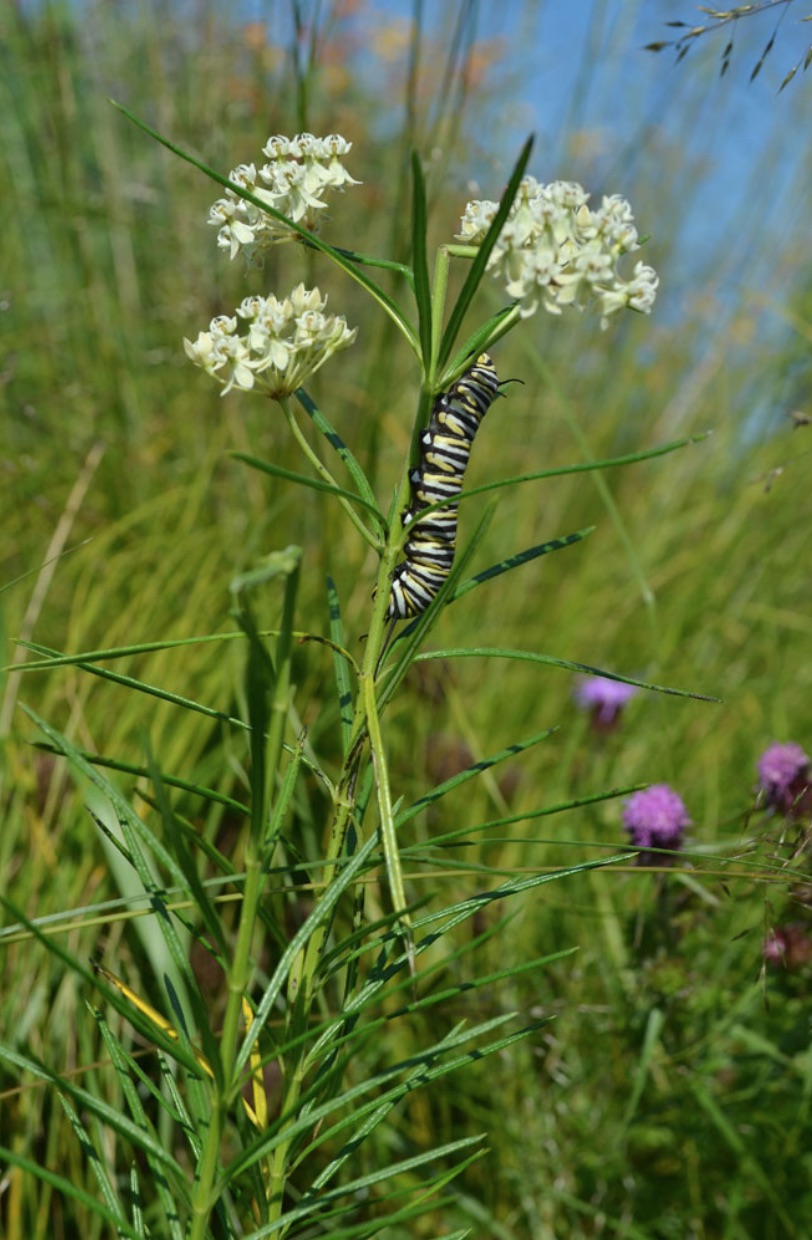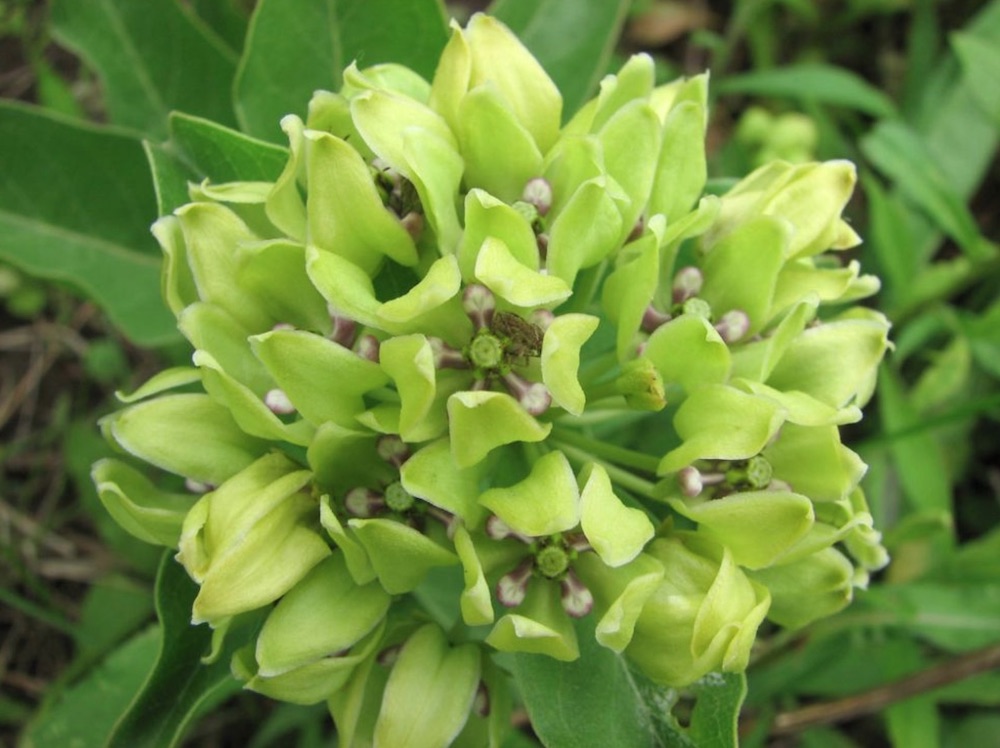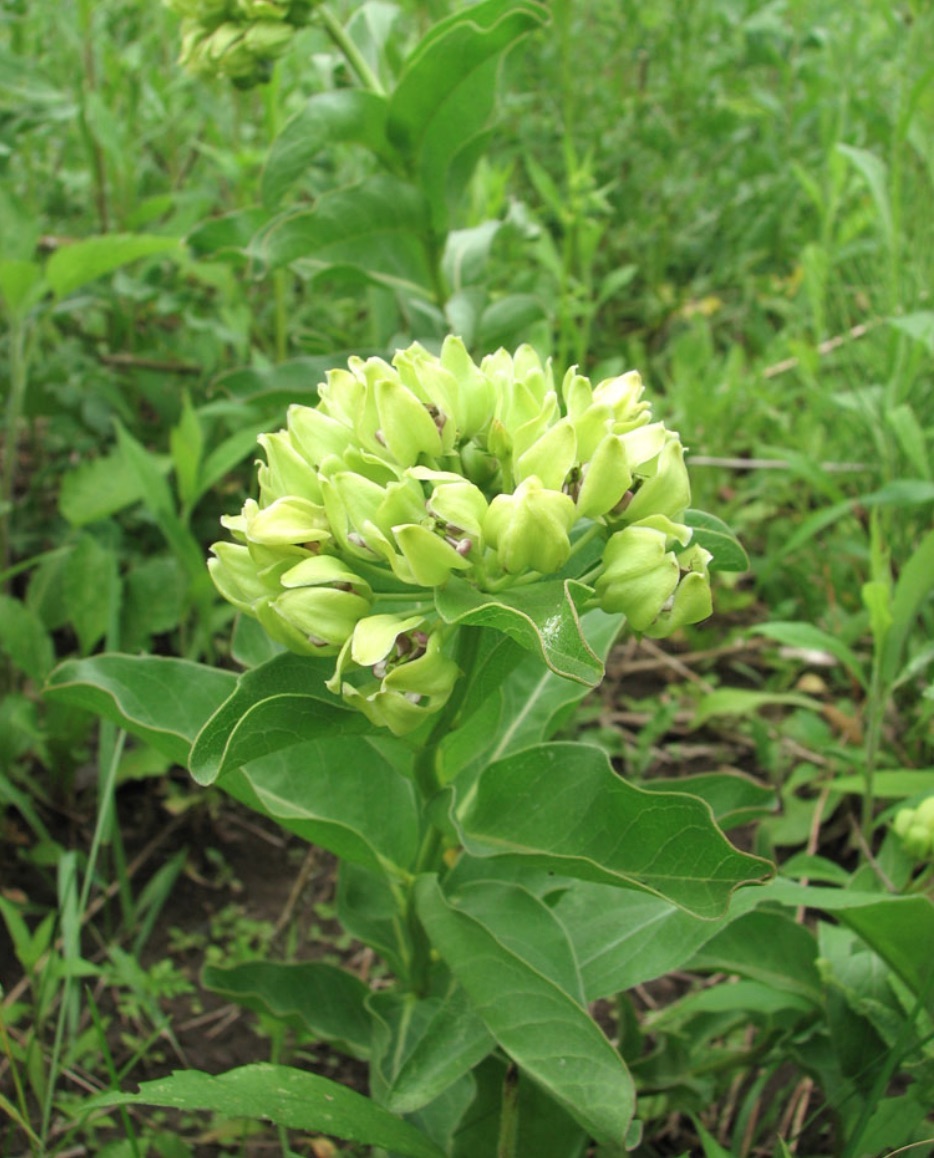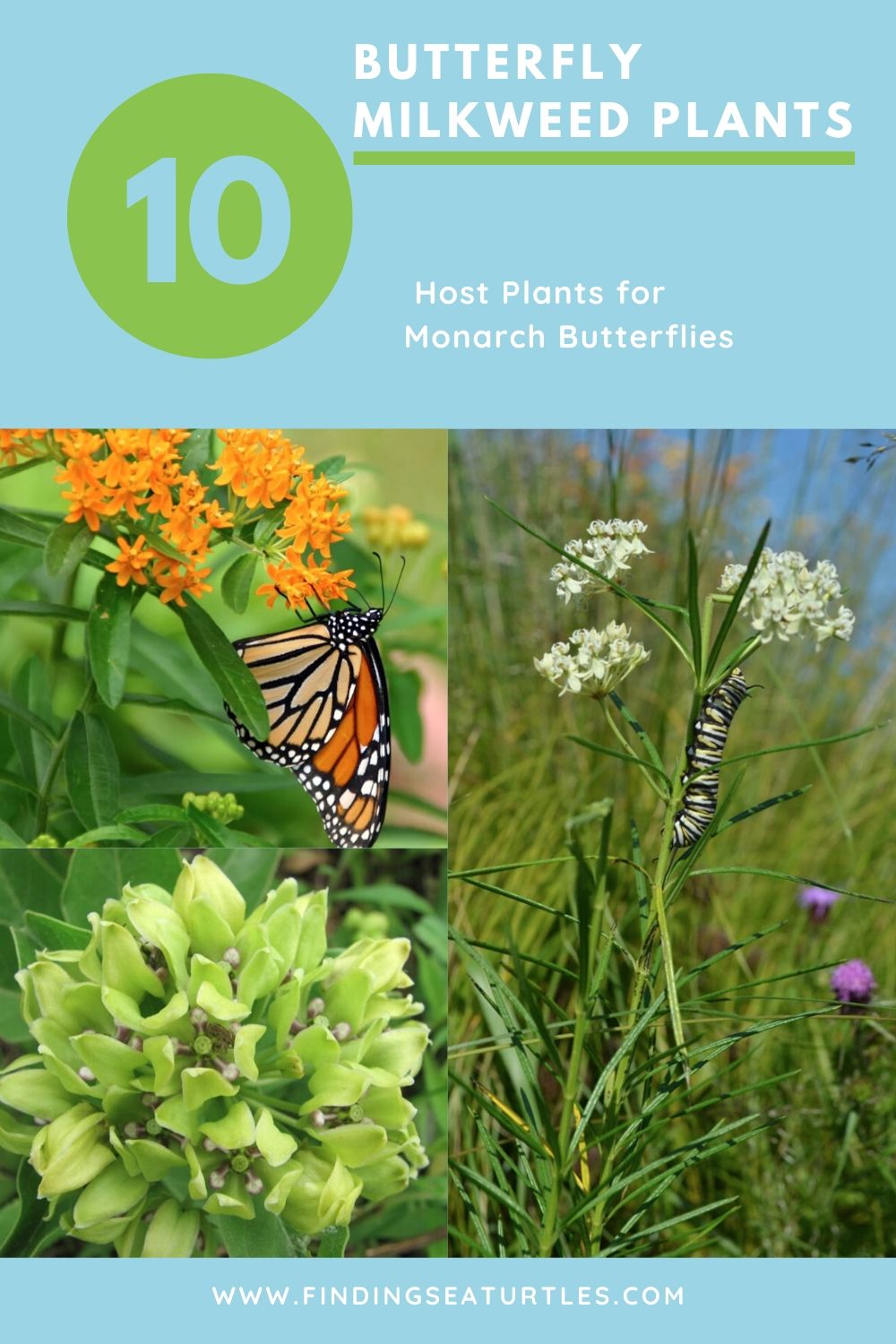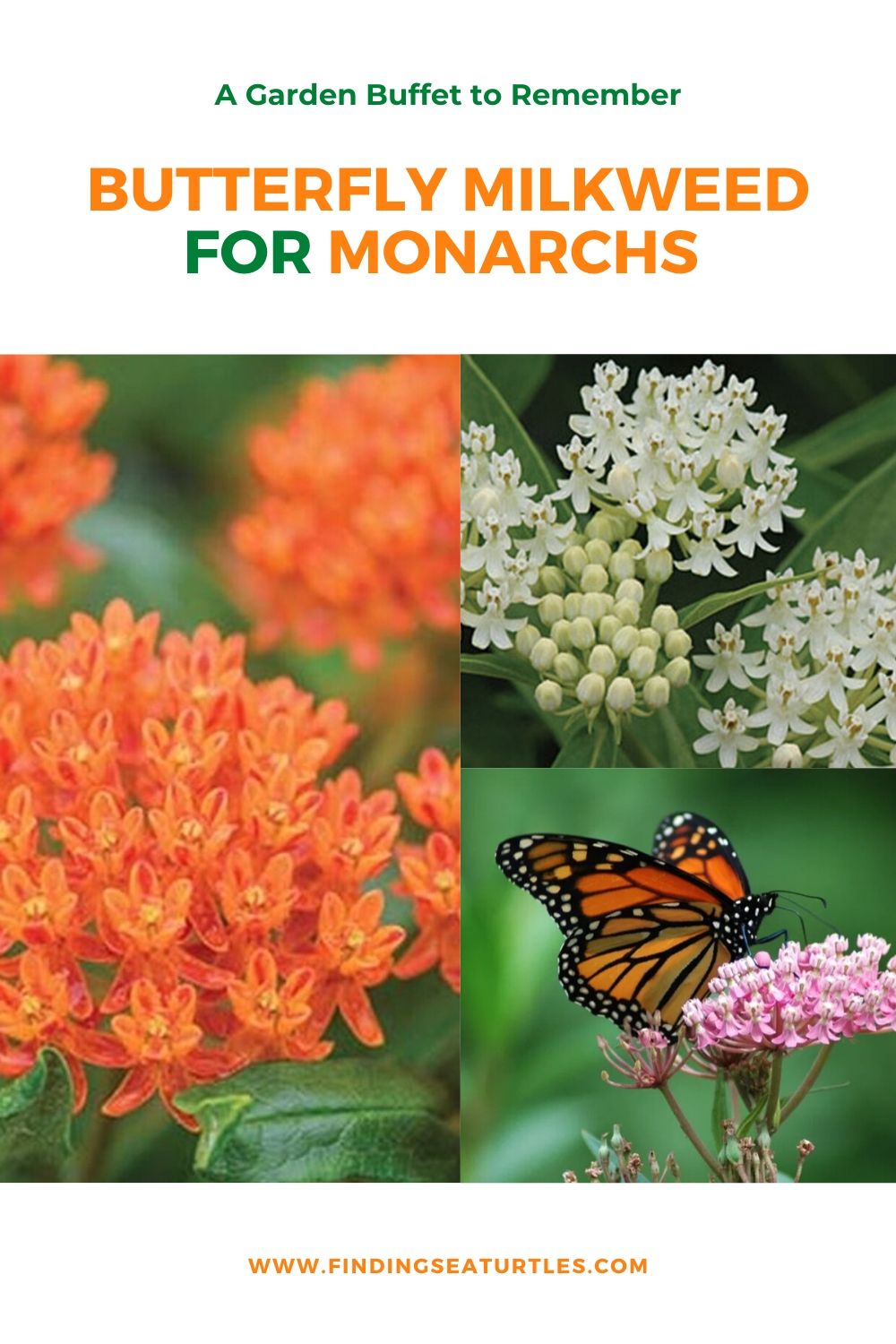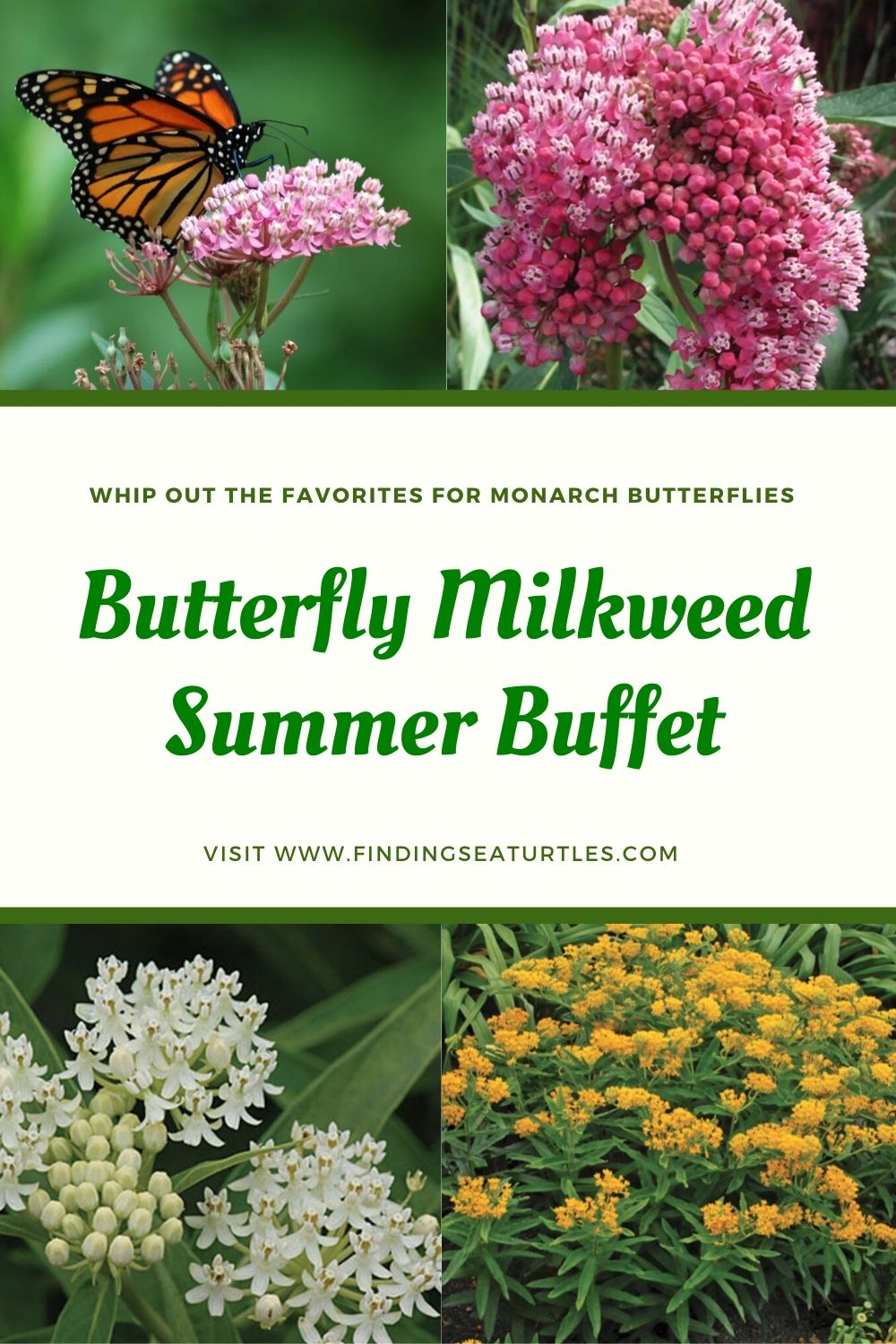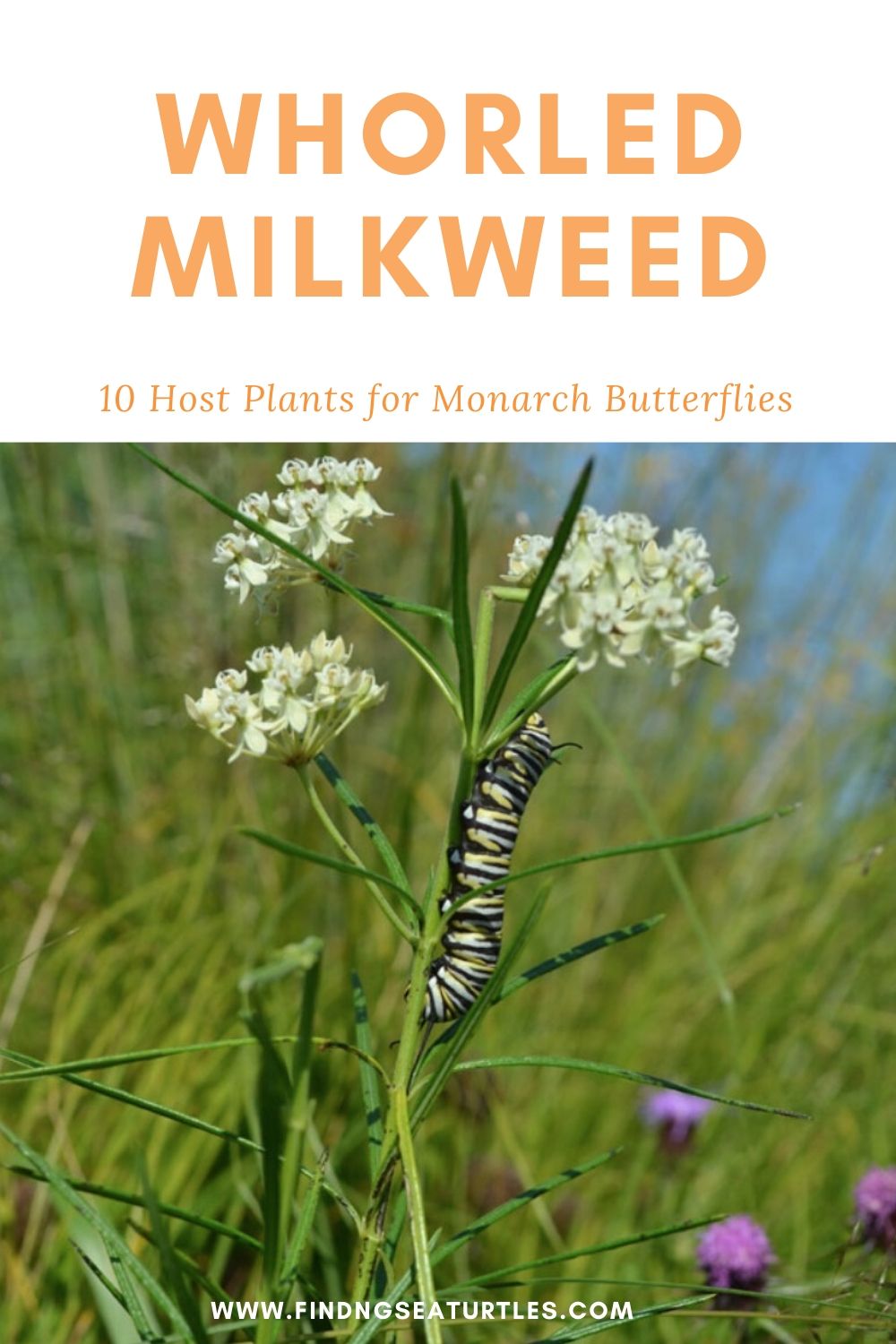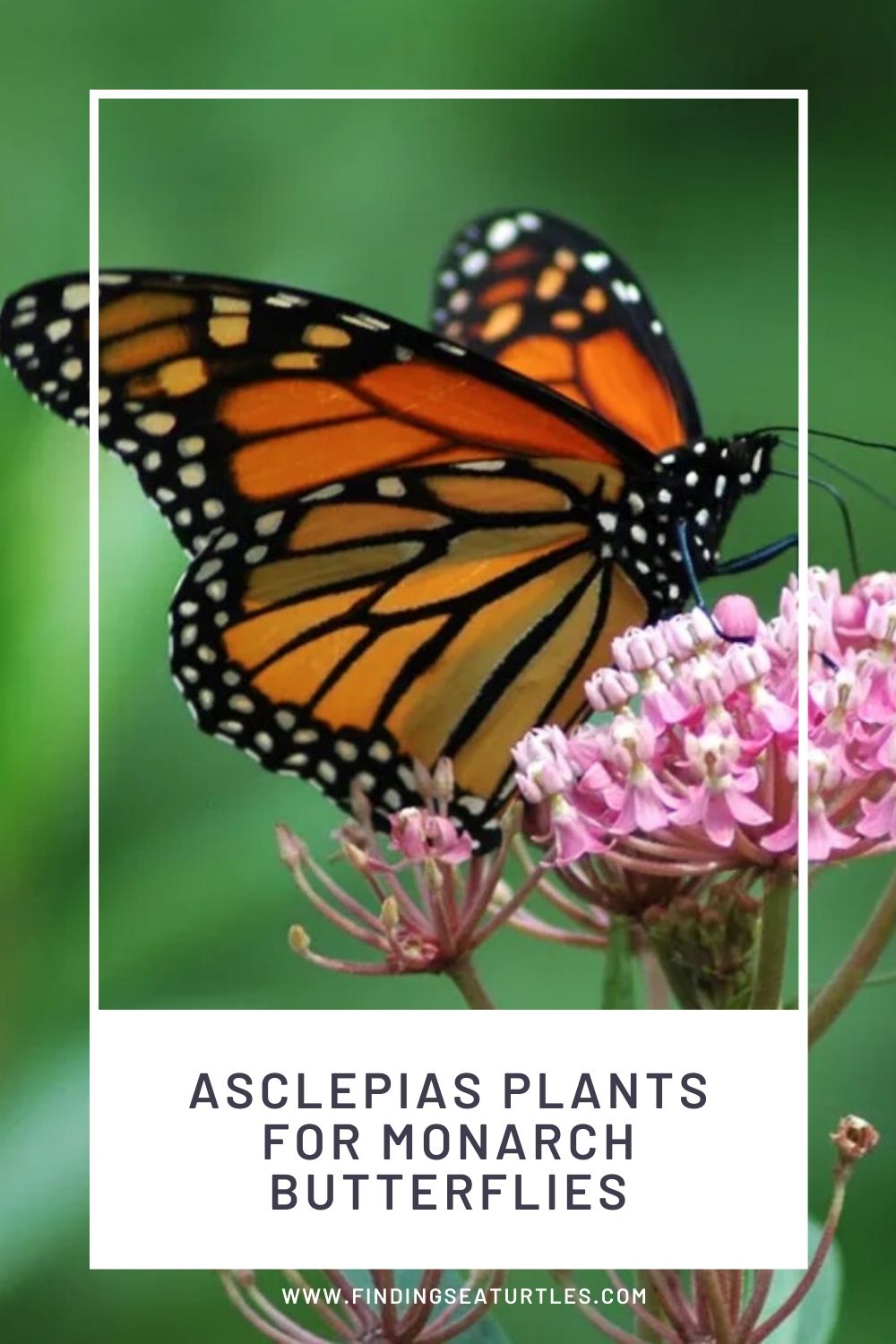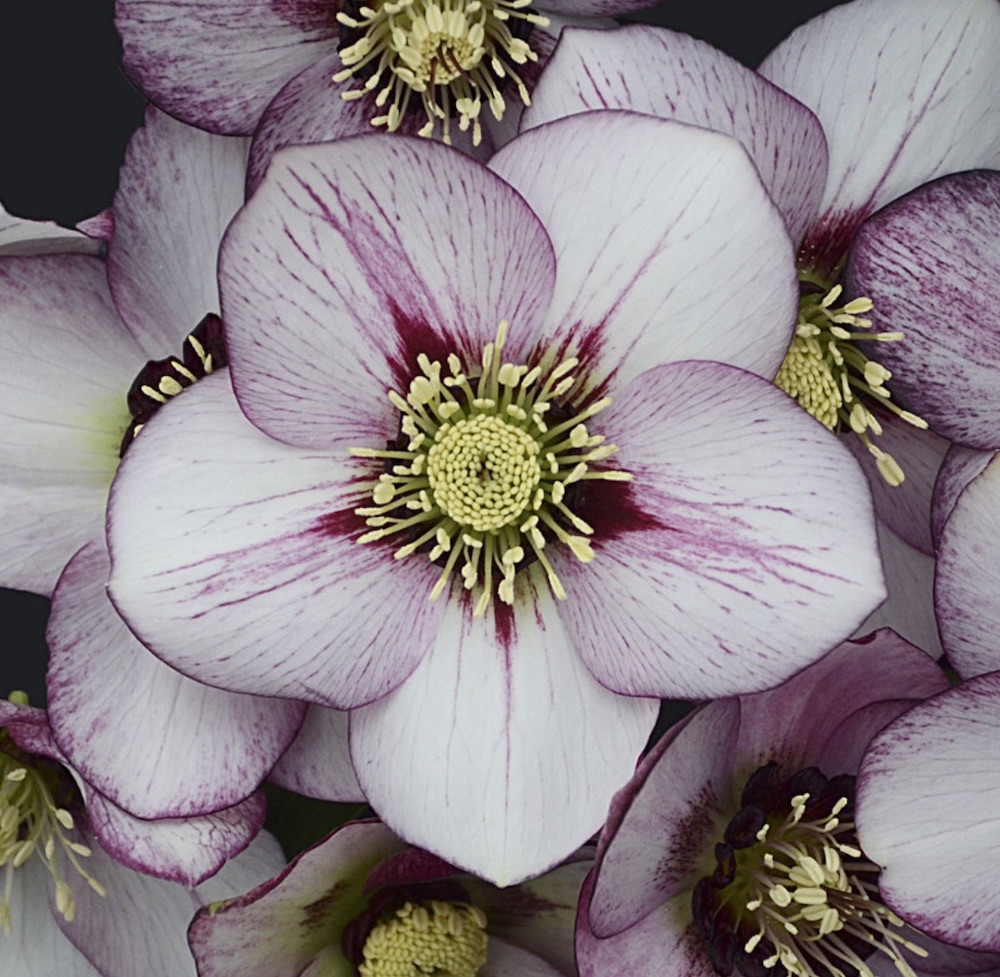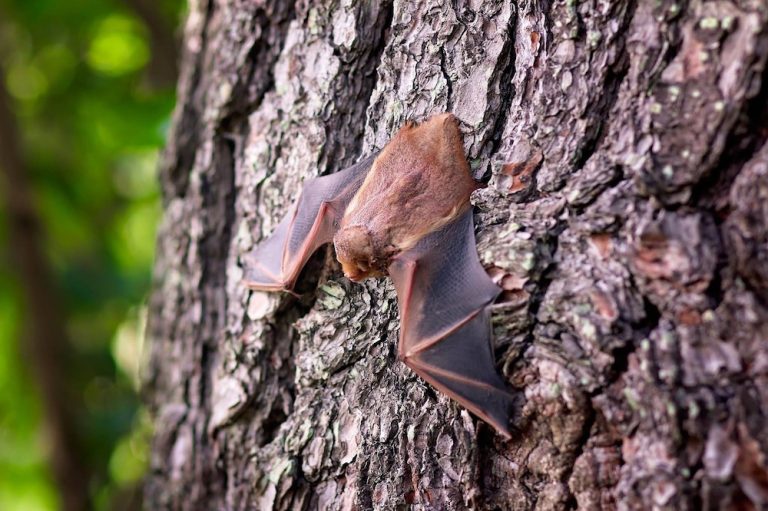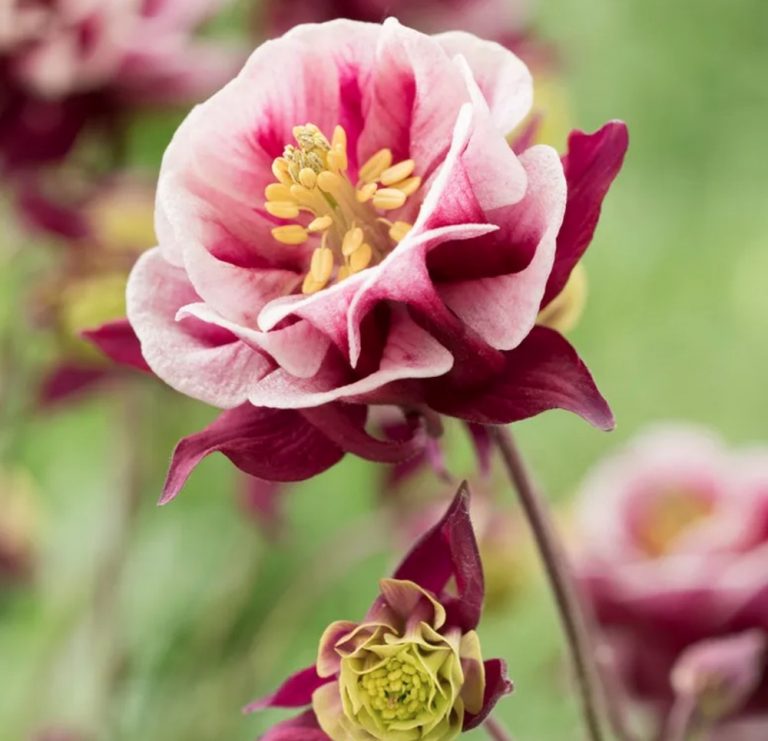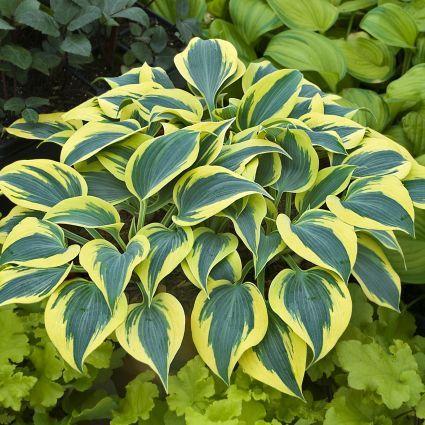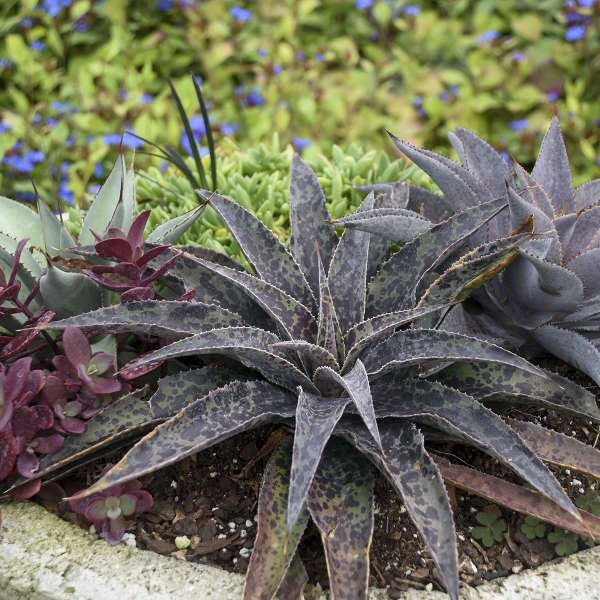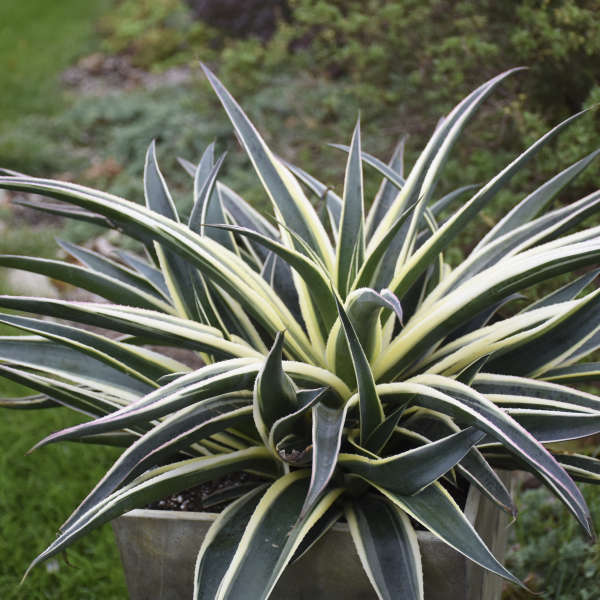9 Ideal Host Plants for Monarch Butterflies
The Asclepias species are the host plants for Monarch butterflies. There are over 100 Asclepias species. To support the life cycle of the Monarch butterfly, the Asclepias plants serve as host plants. A place where their eggs are laid. The host plant also serves as a food source for the Monarch caterpillars to grow and thrive. Along with a host plant, Monarchs need nectar plants to feed adult butterflies. Asclepias is a plant food source for both Monarch caterpillars and adult butterflies.
The most frequently photographed Asclepias is the Asclepias tuberosa. The Asclepias tuberosa has bright clusters of orange or yellow-orange flowers which bloom in the Summer and Fall. If you would like to add some Asclepias plants to your garden, we’ve listed a few that will interest you. Take a look.
HOST PLANTS
ASCLEPIAS TUBEROSA
Asclepias tuberosa Butterfly Weed
- Zones 3 to 10
- Grows in part shade and part Sun to full Sun
- Reaches 12 to 36 inches tall and 24 to 36 inches wide
- Orange crown-shaped cluster blooms Summer to Fall
- Blooms become seed pods of glistening silky hairs in the Fall
- Attracts butterflies, particularly Monarchs
- Native plant
- Resistant to deer
- Tolerant of drought conditions once established.
Plant Asclepias tuberosa Butterfly Weed in meadows or wildflower gardens. Bold colored blooms that Monarchs love. This species is more commonly seen in photographs and the internet.
Butterfly Weed (Clay Form) Asclepias tuberosa
- Zones 4 to 9
- Grows in full Sun
- Reaches 15 to 18 inches tall and wide
- Orange crown-shaped cluster blooms from late Spring through Summer
- Bee friendly
- Attracts butterflies and Monarchs
- Attracts hummingbirds
- Native
- Fragrant flowers
- Resistant to deer
- Tolerant of drought conditions once established (Waterwise)
- Tolerates normal, sandy, and clay soil conditions.
Butterfly Weed Clay form is a special selection of Asclepias tuberosa. It is able to grow in heavy soils including garden areas with clay soil. Other Asclepias plants typically grow in sandy soils.
Asclepias tuberosa Hello Yellow (Common name: Butterfly Weed)
- Zones 3 to 9
- Grows in full Sun
- Reaches 24 inches tall
- Intense Golden Yellow blooms from early through late Summer
- Bee friendly
- Attracts butterflies including the Monarch and Queen Butterflies
- Attracts hummingbirds
- Native
- Resistant to deer
Asclepias tuberosa Hello Yellow is designated as a must-have for Monarchs by Wit’s End Gardens. Late to emerge in the Spring nonetheless blooms for three months.
ASCLEPIAS INCARNATA
Asclepias incarnata Ice Ballet
- Zones 3 to 9
- Grows in part shade and part Sun to full Sun
- Reaches 36 to 48 inches tall and 24 to 36 inches wide
- Tiny white ¼ inch blooms from Spring through Summer
- Blooms become seed pods of glistening silky hairs in the Fall
- Attracts butterflies
- Attracts hummingbirds
- Fragrant flowers
- Resistant to deer
- Tolerant of drought conditions once established
Use Ice Ballet Asclepias incarnata in floral arrangements. The foliage has lance-shaped, dark green leaves.
Asclepias incarnata Cinderella (Common name: Swamp Milkweed)
- Zones 3 to 9
- Grows in full Sun
- Reaches 36 to 48 inches tall
- Rose pink blooms early to late Summer
- Bee friendly
- Attracts butterflies especially Monarchs
- Attracts hummingbirds
- Native
- Fragrant heavenly vanilla scented flowers
- Resistant to deer
- Prefers Wet or Moist soil conditions
Asclepias tuberosa Cinderella is designated as a must-have for Monarchs by Wit’s End Gardens. Provides a tempting table for Monarchs with three months of Summer blooms.
Asclepias incarnata Rose Swamp Milkweed
- Zones 3 to 9
- Grows in full Sun
- Reaches 36 to 48 inches tall and 36 inches wide
- Pink blooms from early through late Summer
- Bee friendly
- Attracts butterflies
- Attracts hummingbirds
- Native
- Fragrant flowers
- Resistant to deer
- Tolerant of drought conditions once established or Waterwise
- Tolerates normal, sandy, and clay soil conditions.
This species of Rose Swamp Milkweed grows best in moist or wet soils. As a result of this, Rose Swamp Milkweed is a great choice for a rain garden too.
Asclepias syriaca (Common name: Common Milkweed)
- Zones 3 to 9
- Grows in full Sun
- Reaches 36 to 48 inches tall and 36 inches wide
- Rose colored blooms early to late Summer
- Blooms develop into seed pods in the Fall
- Bee friendly
- Attracts butterflies especially Monarch butterflies
- Attracts hummingbirds
- Native
- Resistant to deer
Asclepias syriaca Common Milkweed is designated as a must-have for Monarchs by Wit’s End Gardens. Host plant for the Monarch Butterfly. And yummy for Monarch larva (caterpillars).
Asclepias sullivantii Prairie Milkweed
- Zones 3 to 7
- Grows in full Sun
- Reaches 36 inches tall
- Pink blooms from June, July, and through August
- Blooms develop into seed pods in the Fall
- Bee friendly
- Attracts butterflies including Monarchs
- Attracts hummingbirds
- Fragrant flowers
- Tolerant of drought conditions once established or Waterwise
Asclepias sullivantii Prairie Milkweed is also known as Sullivant’s Milkweed. This species of milkweed is named after William Starling Sullivant, an American botanist of the mid-1800s. Besides being a Monarch butterfly host plant, it is favored by the larvae of the Milkweed Leaf-Miner fly.
Asclepias verticillata (Common name: Whorled Milkweed)
- Zones 4 to 9
- Grows in full Sun
- Reaches 18 to 28 inches tall
- White blooms from early through late Summer
- Beneficial for pollinators
- Bee friendly
- Attracts butterflies
- Attracts hummingbirds
- Resistant to deer
- Native
Asclepias verticillata or Whorled Milkweed is designated as a must-have for Monarchs by Wit’s End Gardens. Needle-like foliage is loved by Monarchs. Butterflies lay their eggs on the Whorled Milkweed foliage.
Asclepias viridis Spider Milkweed
- Zones 5 to 9
- Grows in part shade and part Sun to full Sun
- Reaches 12 inches tall
- Rose white flowers with green blooms May to June
- Beneficial for pollinators
- Attracts butterflies
- Tolerant of drought conditions once established
Also known as Green Antelopehorn. Asclepias viridis Spider Milkweed has a milky sap that is attractive to Monarch butterflies and other insects. Flowers are showy umbellate clusters.
Host Plants for Monarch Butterflies
To attract a greater number of Monarch Butterflies to your garden, provide two types of plants. The first plant is the host plant. A host plant provides a place (underneath the leaves) for Monarchs to lay their eggs. The eggs hatch in about 4 days. Larva or the caterpillar, first eats its eggshell, then begins to eat the surrounding plant leaves. In conclusion, if you have the garden space, plant at least two host plants of Asclepias to accommodate the eggs and larva.
Nectar Rich Plants for Monarch Butterflies
The second type of plant Monarch Butterflies need is nectar-rich plants. Although Asclepias do provide nectar to Monarchs, it is best to have a variety of plants. Plants with different blooming periods. The idea is to have nectar always available from early Spring through late Fall. The Asclepias bloom primarily in the Summer months.
If one garden plant is blooming either earlier or later in the season, have other plants that produce nectar. In other words, provide a never-ending buffet of nectar-rich plants. And finally, supplement these plants with seasonal blooming annuals to overlap periods when blooms are at a minimum.
Our list of host plants for Monarch butterflies is a small sample of Asclepias available to the gardener. This list is by no means a complete list of Asclepias since there are over 100 species. So for this reason, we recommend that you visit your local garden center or nursery. They have additional Asclepia selections that suit your planting zone and local climate conditions.
Interested in pollinator gardening? If you found this helpful . . .
Enjoy some of our other gardening related posts:
Plants that Attract Hummingbirds
Pollinator Plants that are Rabbit Resistant
15 Bee-Friendly Perennials
How to Create a Wildlife Sanctuary With Native Plants
And if you have any questions, feel free to reach out to us. We are always ready to help you out. And of course, thank you so much for dropping by.
Mary

